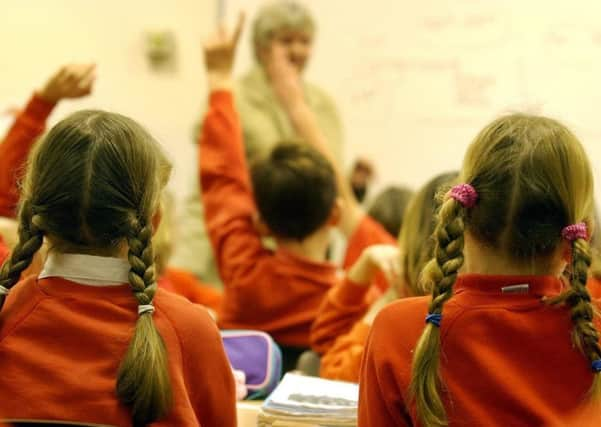Emma Lewell-Buck MP: School cuts hit children with special education needs the hardest


As many people know I spent life until I was in my 20s with undiagnosed dyspraxia and mild dyslexia. I am one of the lucky few who, through my education and support from those around me, was able to get to where I am today.
Others are not so lucky, and in Tory Britain, children with special educational needs and disabilities are becoming increasingly marginalised in education.
Advertisement
Hide AdAdvertisement
Hide AdSchools in England are facing the first real-terms funding cuts in 20 years with £2.8billion being cut from school budgets since 2015.
Support for SEND (special educational needs and disabilities) is often the first to go and as a result many children who would have previously succeeded in mainstream education are being marginalised.
SEND students are over-represented in exclusion figures: three quarters of the pupils in pupil referral units have special educational needs. Department for Education statistics show a 59% rise in exclusions among autistic children between 2011-12 and 2015-16. Worse still in 2017, 4,152 SEND children were left without a school place at all.
Our mainstream education system with rising class sizes, low pay for teachers and increasing competition between schools to hit high academic achievements is one in which children with special needs struggle to flourish. In this environment it is no surprise that schools are engaging in off-rolling, a process whereby children are excluded before exams in an attempt to improve school performance.
Advertisement
Hide AdAdvertisement
Hide AdAnother way SEND pupils are being marginalised is through specialist provision. Whilst I am not against children and families choosing specialist provision if it is right for them, often times a real choice does not exist.
Mainstream schools stop being an option when there is little to no support available for these students. This is a key reason for 2016 being the first time in 25 years where more children with SEND were educated outside the mainstream.
In 2017, a United Nations report concluded that the UK government was guilty of “grave or systematic violations of the rights of persons with disabilities” and has criticised the UK Government for developing a dual education system.
We need to readjust our priorities in education and renew our commitment not to discriminate against children with special educational needs and disabilities.
Advertisement
Hide AdAdvertisement
Hide AdThe measure of our education system should be the support that it offers to the most vulnerable children. Quite simply, the Conservatives are failing this test.
The next Labour government will invest in a National Education Service with inclusivity at its heart, giving every child the support they need and the opportunity to succeed, in a country for the many, not the few.